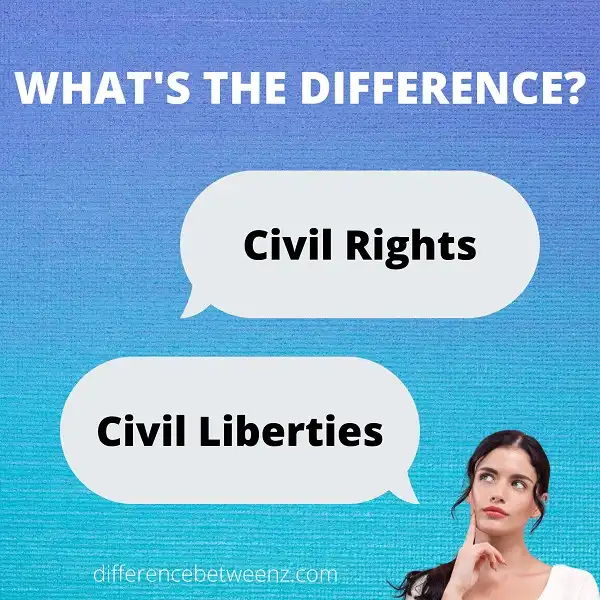What is the difference between civil rights and civil liberties? This question is more complicated than it may seem at first. The answer depends on who you ask and what definitions they are using. Generally, civil rights are defined as those legal rights given to a person based on their status as a citizen of a country.
Civil liberties, on the other hand, are the freedoms and protections that all citizens enjoy under the law. There is some overlap between these two concepts, but in general, civil rights are considered to be more finite and specific, while civil liberties are broader and encompass a wider range of freedoms.
What are Civil Rights?
Civil Rights are the freedoms and protections afforded to all citizens of a nation by law. Civil rights can include things like freedom of speech, assembly, and freedom from arbitrary arrest. Civil rights also guarantee equality before the law and equal access to public services. Civil rights are protected by constitutional law in most countries, and violations of civil rights can lead to civil penalties.
Civil rights are different from human rights in that they are not inherent to all people, but are instead granted by a government. Civil rights can be revoked or curtailed by government action, whereas human rights are considered to be inalienable.
What are Civil Liberties?
Civil liberties are freedoms that protect individuals from interference by the government. Civil liberties guarantee individuals the ability to live their lives without fear of government intrusion. Civil liberties are based on the principles of freedom and equality. Civil liberties include the right to life, liberty, and security of person; freedom of expression; freedom of religion; and the right to privacy, among others.
Civil rights are often confused with civil liberties, but they are not the same. Civil rights guarantee equality before the law and protect individuals from discrimination. Civil liberties, on the other hand, protect individuals from government interference. Both civil rights and civil liberties are essential for a thriving democracy.
Difference between Civil Rights and Civil Liberties
- Civil rights are the rights of individuals to be treated equally by the government, while civil liberties are the freedoms that individuals have from government interference. In other words, civil rights guarantee equal treatment under the law, while civil liberties protect individuals from being unfairly targeted by the government. Civil rights ensure that all citizens are treated equally before the law, while civil liberties protect citizens from arbitrary government action.
- Civil rights are absolute and cannot be violated, while civil liberties can be subject to limitations in the interest of public safety. Civil rights are held by all citizens, regardless of race, religion, or national origin, while civil liberties are held by all citizens regardless of their status as criminals or victims.
- Civil liberties include freedom of speech, freedom of religion, and the right to a fair trial, while civil rights include the right to vote, the right to equality under the law, and the right to due process. Civil liberties can be infringed upon by government action, but civil rights cannot. Civil liberties protect citizens from government intrusion, while civil rights protect citizens from discrimination.
Conclusion
The definitions of civil rights and civil liberties can be confusing, but the distinction is an important one to understand. Civil rights are legal protections that ensure all individuals are treated equally under the law. Civil liberties, on the other hand, protect individual freedoms, such as freedom of speech or religion. It’s important to remember that these two concepts are not mutually exclusive – individuals can have both civil rights and civil liberties. However, it’s also important to be aware of which rights and liberties are being protected in any given situation.


